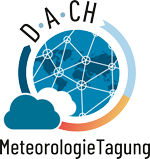Global and amplified land warming trends over the past 40+ years are entirely human-driven.
- Climate Service Center Germany (GERICS), KGK, Hamburg, Germany (karsten.haustein@hereon.de)
The role of external (radiative) forcing factors and internal unforced (ocean) low-frequency variations in the instrumental global temperature record are still hotly debated. More recent findings point towards a larger contribution from changes in external forcing, but the jury is still out. While the estimation of the human-induced total global warming fraction since pre-industrial times is fairly robust and mostly independent of multidecadal internal variability, this is not necessarily the case for key regional features such as Arctic amplification or enhanced warming over continental land areas. Accounting for the slow global temperature adjustment after strong volcanic eruptions, the spatially heterogeneous nature of anthropogenic aerosol forcing and known biases in the sea surface temperature record, almost all of the multidecadal fluctuations observed over at least the last 160+ years can be explained without a relevant role for internal variability. Using a two-box response model framework, I will demonstrate that not only multidecadal variability is very likely a forced response, but warming trends over the past 40+ years are entirely attributable to human factors. Repercussions for amplifed European (or D-A-CH for that matter) warming and associated implications for extreme weather events are discussed. Further consideration is given to the communications aspect of such critical results as well as the question of wider societal impacts.
How to cite: Haustein, K.: Global and amplified land warming trends over the past 40+ years are entirely human-driven., DACH2022, Leipzig, Deutschland, 21–25 Mar 2022, DACH2022-256, https://doi.org/10.5194/dach2022-256, 2022.

